Economist and author Devaki Jain counted Girish Karnad among her good friends.
Naturally, the 86-year-old Padma Shri awardee is coping with a deep sense of loss after Karnad passed into the ages on June 10.
It is a loss, she fears, her beloved state, Karnataka, may never recover from.
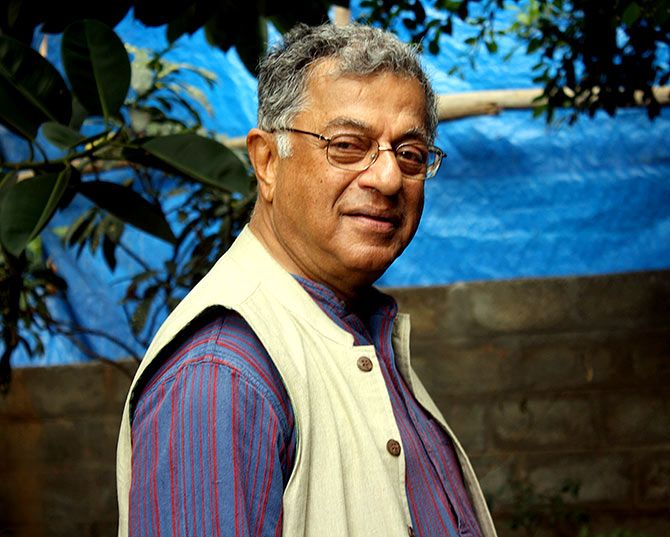
With the passing of Girish Karnad, we have lost the gentle triumvirate of Karnataka -- the other two were U R Ananthamurthy and A K Ramanujan... three brilliant thinkers blessed with the genius of creative writing.
All three were my friends -- Girish, of the longest standing -- and friends of each other. They acknowledged the influence they had on each other.
I first met Girish at Oxford. He was a student of Magdalen College and I was at St Anne’s College.
This was in 1960.
In those days, there were not many students from Karnataka, if any, at Oxford. They were mostly the Nehrus, the Menons, the Jhas, and the Dayals, and children of other well-known civil servants and the elite of Delhi. And, of course, students from Calcutta (now known as Kolkata).
Presidency College has a special tie-up with Oxford and would give scholarships to students who were admitted there. We could meet Bengalis like (the late Indian historian) Tapan Raychaudhuri….
I was a misfit in that I got into a college in Oxford through various unexpected mishaps.
When I heard that there was another student from Karnataka in one of the colleges at Oxford, I was eager to meet him and to have a friend from the south, so to speak.
So, I reached out. And Girish invited me for tea, which was a kind of style in Oxford, in his room in Magdalen College.
He told me a little bit about his family and his talented mother. But we did not deepen our friendship at that time.
That happened after I returned to India.
I was travelling in Karnataka, doing a great deal of research as well as working in the state government's committees.
Girish told me about his home in Dharwad (where he grew up) and enabled me to visit and that's where I met his mother.
She was so affectionate and welcoming. I remember her sitting in the verandah and, after a while, she brought out her harmonium and sang for me.
For the next several decades, we would meet regularly.
Then came a time when he started living in Bangalore (now Bengaluru). By the time, I had established a branch of the Institute of Social Studies there.
On one occasion, Girish reached out to me and said that Saraswati, his wife, was looking for some professional work; she was a doctor and had been used to working but the shift to Bangalore had disrupted that.
I invited Saras to lead a research-based project that the Institute Of Social Studies Trust was conducting on child nutrition in India.
We had chosen a site in the north and a site in the south so that we could draw a comparison.
Saras worked at the ISST for approximately five years. This strengthened our friendship.
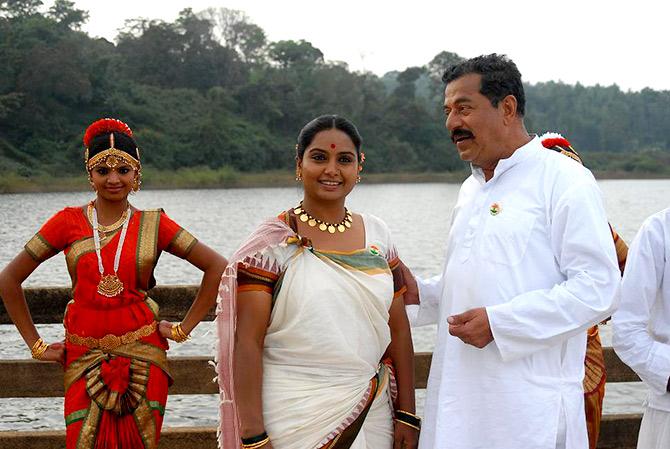
Girish requested my father (M A Sreenivasan, former Dewan of the princely state of Gwalior, former chairman of Air India and the Kolar Gold Mines and a former civil servant) to come to the theatre, but by that time my father was not strong enough to do so.
He would have enjoyed the cutting edge of some of Girish's plays which contained, without definition or too much underlining, a moral consciousness I would like to call 'Indian' instead of the pompous sounding 'Indian civilisation'.
So Girish brought him a whole set of DVDs and films in which he had acted. My father feasted over them and met Girish to discuss them and thank him.
I am proud that Girish, after being welcomed all over the world, came back to live in Bangalore and continued to produce brilliant plays and writing, building on our own folk literature with a philosophical underpinning.
The last time I met Girish was when I happened to be in Bangalore for the first memorial meeting for Gauri Lankesh (the Karnataka-based journalist-turned-activist who was murdered in 2017).
Some of us in New Delhi had petitioned the government, protesting against the arrest of members of civil society on the allegation that they were Naxals.
So Girish had me invited to the meeting, and hung around his neck a placard saying ‘Me too Urban Naxal’, which many of us also had worn.
We sat together at the meeting.
He then dropped me home, all the way to RMV, accompanied by his oxygen cylinder and the tubes in his nose.
I did not realise then that I would never have the joy of sitting with him ever again.









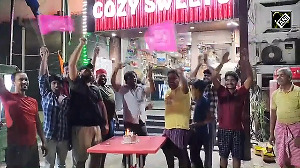
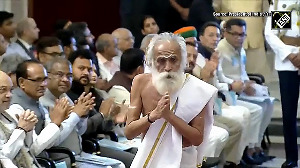
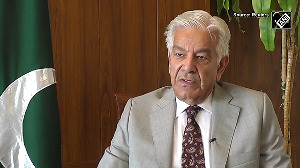
 © 2025
© 2025